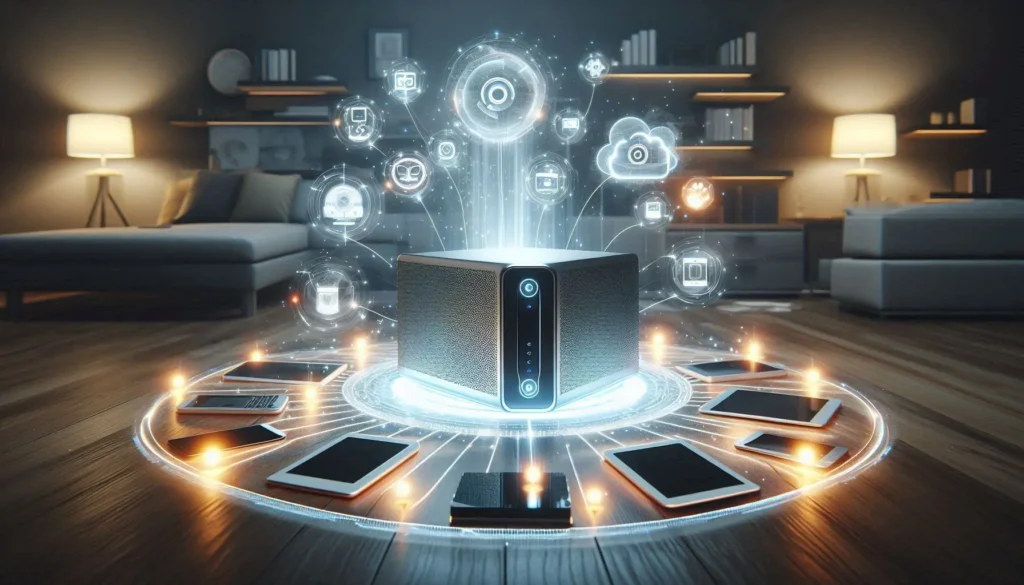
Unleash the Power: Setting the Stage for Energy Efficiency
In the ever-evolving world of personal media servers, achieving energy efficiency isn’t just smart—it’s essential. A Plex server stands as the cornerstone of your media kingdom, handling everything from library organization to seamless streaming. Yet, without an energy-efficient setup, the costs can skyrocket, and the planet won’t thank you. Picture this: dramatic reductions in energy bills, a green stamp of approval, and a server that performs like a superstar in an awards season. A lean, mean, green-machine Plex server optimizes performance while conserving energy, reaping both ecological and financial rewards. Let’s dive into the groundbreaking hardware upgrades that transform your Plex server into an energy-efficient powerhouse.
The Brains of the Operation: Optimized CPU Selection
The CPU is the heartbeat of your Plex server, dictating how energy-efficient your setup will be. Energy-efficient CPUs can significantly slash power consumption without a meaningful hit to performance, keeping your media streaming smoothly while your electric bill stays slim. Look for modern low-power champions like Intel’s i3-10100 or AMD’s Ryzen 5 3600—both masters of sipping watts sensibly. Balancing blazing speed with energy frugality mandates choice wisdom: prioritize CPUs with low TDP (Thermal Design Power) but high efficiency ratings. These options ensure your server purrs along efficiently, handling transcoding tasks effortlessly without leaving a hefty energy footprint.
Also read:
Memory Matters: Efficient RAM Upgrades
Think of RAM as your server’s short-term memory—more allows for seamless multitasking, while less means frequent and inefficient data retrieval from disk storage. Opting for energy-efficient RAM modules like LPDDR4 reduces power usage, essential for large Plex libraries. Upgrading to 8GB or 16GB low-voltage RAM ensures smooth, energy-efficient operations, keeping your server responsive without breaking the energy bank.
Also read:
Storage that Stands Out: Going Green with Drives
When it comes to energy efficiency, not all storage drives are created equal. Solid-State Drives (SSDs) far outstrip traditional Hard Disk Drives (HDDs), consuming less energy while offering superior speed. Go for SSDs from energy-conscious brands like Samsung’s Evo series, ensuring quick access times for your media while keeping consumption low. Remember: the less your storage spins, the lower the energy draw.
Also read:
Beyond Basic Graphics: Low-Power GPU Choices
While Plex servers can run without a dedicated GPU, adding one alleviates CPU workload for intensive transcoding. Prioritize energy-sipping models such as NVIDIA’s GeForce GTX 1650 or AMD’s Radeon RX 550—lightweights in power use but not in prowess. Embrace a GPU that complements your server’s capacity, especially for those 4K HDR streaming sessions where running lean doesn’t mean cutting corners.
Also read:
Cooling Without Compromise: Energy-Smart Cooling Systems
A sweltering server is an inefficient server. Cooling systems ensure your components operate at peak performance while minimizing energy waste. Compare air and liquid cooling systems; often, energy-smart air cooling setups reign supreme for Plex servers. Select fans that wield both whisper-quiet operation and adaptable speed control, so your server stays cool without guzzling watts.
Also read:
Motherboard Magic: Energy-Efficient Options
Your motherboard is the backbone of efficient energy support. Choose one that can handle low-power components, boasts fine power regulation circuits, and enables power-saving features. Models flaunting the ‘Energy Star’ label or similar certifications tick the right boxes, providing a stable foundation for your efficient Plex server.
Also read:
Powering Up: Energy-Efficient Power Supplies
Power supplies are often overlooked champions in the quest for efficiency. Look for PSUs with 80 PLUS Gold or even Platinum certification, ensuring minimal energy is lost in power conversion. Brands like Corsair and Seasonic excel here with units featuring smart power management, tailored for minimal waste and maximum efficiency.
Network Know-How: Minimizing Draw with Smart Networking
Your server’s lifeline to the outside world shouldn’t be a power hog. Energy-efficient routers and network adapters maintain robust connectivity while keeping power consumption low. Opt for routers with power-saving modes and ensure your NAS interfaces are tailored for efficient streaming, proving reliable yet thrifty.
Also read:
The Smart Home Office: Peripheral Considerations
Peripherals can quietly creep up your power budget. Select accessories known for their energy-saving modes—like smart plugs and keyboards that sleep after inactivity. Choose monitors and extenders which are LED-backlit or equipped with automatic brightness adjustment, achieving an office setup that’s as cushy as it is cost-conscious.
The Final Spark: Make Every Watt Count
Congratulations! You’re now armed with the knowledge to forge a Plex server that’s lean, green, and endlessly keen. By harnessing these game-changing upgrades, you’ll reap massive energy savings, amplify your server’s performance, and minimize ecological impact. Remember: optimization is a journey, not a destination. Continuously review and adapt your Plex setup, striving always for the epitome of efficiency. Your Plex server doesn’t just serve content; it’s a testament to innovation, sustainability, and sophistication. Let it be the envy of media enthusiasts everywhere.

Meet Plex-i Man, your friendly neighborhood Plex enthusiast and tech wizard. With years of experience tinkering with media servers and a passion for simplifying complex tech, Plex-i Man is on a mission to help everyone build their perfect Plex setup. When not writing guides or troubleshooting Plex issues, you’ll find him exploring the latest in home theater tech or binge-watching sci-fi series. Got a Plex problem? Plex-i Man is here to save the day!


